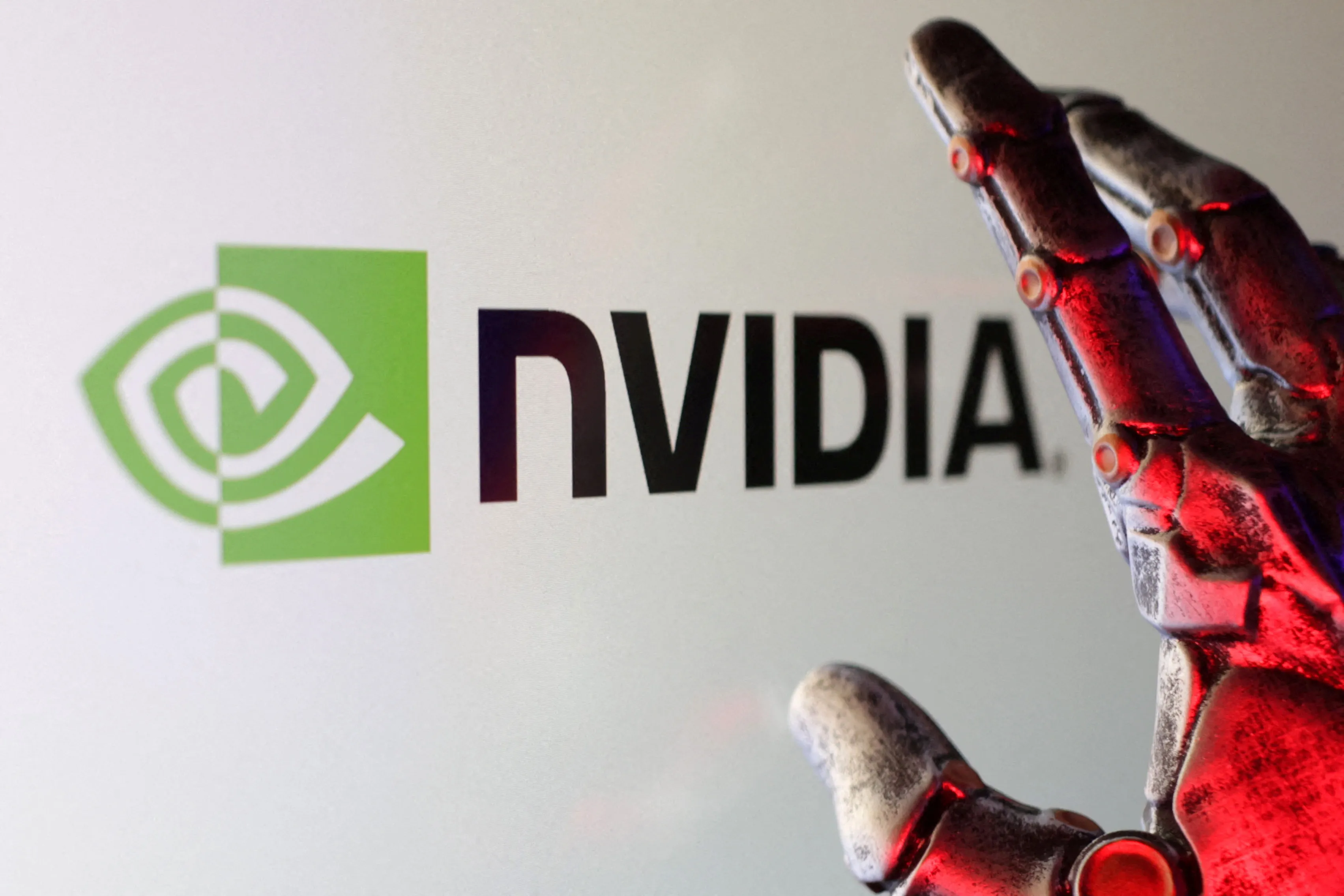After the Fed's Rally, Nvidia Earnings Are the Biggest Stock Market Risk
Traders are starting the week on a more optimistic note after Federal Reserve Chair Jerome Powell signaled that interest rate cuts are on the horizon. But the real challenge ahead for equities is tied to a major market driver in recent years: the surge of enthusiasm around artificial intelligence.
Investor sentiment was shaky heading into Friday. The S&P 500 had logged five consecutive declines its longest losing streak since January as many on Wall Street scaled back expectations for imminent Fed rate cuts. Powell’s reassuring comments turned the tide, sending the index to its strongest session since May and pushing it within two points of an all-time high.
The next big spotlight falls on Nvidia Corp., which will release its quarterly results Wednesday after the closing bell. Investors are hoping the chipmaker will calm nerves about AI spending and confirm that the latest rally isn’t just a speculative tech bubble.
“Nvidia is absolutely critical for the broader market because any sign of strength could reignite momentum,” said Eric Beiley, executive managing director at Steward Partners. “The risk is that all this AI investment could be nearing a peak if results disappoint or guidance looks cautious, which could really shake markets.” Beiley owns shares of Nvidia but noted he has started adding hedges given its massive run-up.
Nvidia’s influence is undeniable. It carries the heaviest weighting in the S&P 500 nearly 8% and sits at the center of the AI revolution. Its chips power much of today’s AI infrastructure, with roughly 40% of revenue coming from tech giants like Meta Platforms, Microsoft, Alphabet, and Amazon each also among the S&P 500’s top holdings.
That’s why the company’s earnings report and forward guidance are viewed as a pivotal event for markets.
“The stakes are still incredibly high,” said Kim Forrest, chief investment officer at Bokeh Capital Partners. “So much of the market’s recent strength has rested on Nvidia and similar names, which makes me a bit nervous.”
To be fair, investors have some visibility into what to expect. Nvidia’s biggest customers have already posted solid results this earnings season, with many pledging to keep boosting their multibillion-dollar capital expenditures a positive sign for the chipmaker’s revenue outlook.
“Nvidia often reports at moments when the tech sector is under scrutiny, and that’s definitely been the case in the past two weeks,” said Art Hogan, chief market strategist at B. Riley Wealth. “It has the potential to serve as a real catalyst.”
One lingering concern for Nvidia is whether it can maintain access to the Chinese market. The U.S. recently granted Nvidia and Advanced Micro Devices permission to resume certain chip sales to China provided they hand over 15% of revenue to the U.S. government. However, Beijing has pushed local firms to avoid Nvidia’s H20 AI chip, designed for the Chinese market, leading the company to halt production, according to The Information.
“The expectation had been that Nvidia would eventually regain footing in China,” said Michael O’Rourke, chief market strategist at Jonestrading. “But the Biden administration’s stance that H20 chips are nearly obsolete has irritated Beijing. On top of that, China fears the U.S. could use Nvidia technology for backdoor access to its systems.”
Despite these challenges, Wall Street analysts remain broadly upbeat. In the past week alone, nine out of 79 analysts covering Nvidia raised their price targets, according to Bloomberg data. The consensus now sits above $194 a share, implying about a 9% upside from Friday’s close at $178.
Nvidia’s results aren’t the only potential market mover next week. Investors are also awaiting fresh inflation data, with the core personal consumption expenditures (PCE) index set for release Friday. Still, much of Wall Street’s attention is squarely focused on whether Nvidia can justify its towering valuation or spark a selloff if expectations aren’t met.
“I’m worried,” Beiley admitted. “The economy is already under pressure from tariffs and slowing job growth. If there’s any disappointing news, these richly valued stocks could tumble, exposing the broader market to concentration risk.”

Subscribe to our newsletter!
As a leading independent research provider, TradeAlgo keeps you connected from anywhere.








